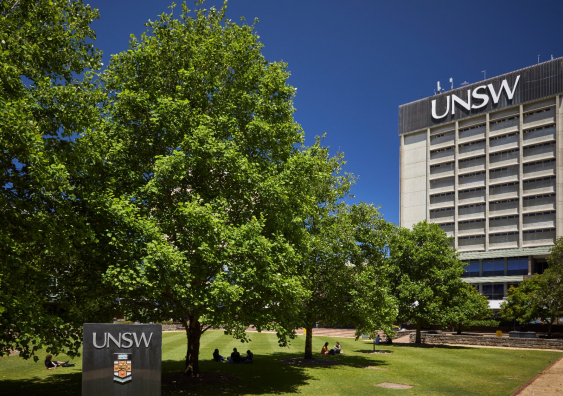UNSW tops ARC grants for Infrastructure, Equipment and Facilities
The funding will provide access to world-class infrastructure to support UNSW research projects.
The funding will provide access to world-class infrastructure to support UNSW research projects.

Olga Gerloff
0434498838
olga.gerloff@unsw.edu.au
UNSW Sydney has received a total of more than $6 million in Australian Research Council (ARC) Linkage Infrastructure, Equipment and Facilities (LIEF) grants, leading the nation in the number of grants and share of funding.
The 2023 LIEF funding will be spread across eight projects led by UNSW researchers – four from UNSW Science, two from Engineering and one each from Arts, Design and Architecture and from the Division of Research and Enterprise.
ARC Chief Executive Officer Judi Zielke announced more than $28 million in funding for 35 new research projects under the ARC LIEF scheme which enables researchers to participate in cooperative initiatives so that research infrastructure, equipment and facilities can be shared between higher education organisations and with industry.
Read more: UNSW researchers awarded more than $2.3m to build research infrastructure
UNSW Pro Vice-Chancellor Research Infrastructure, Professor Grainne Moran, congratulated this year’s UNSW LIEF recipients.
“The University’s ongoing success in the LIEF scheme demonstrates the quality of our academics, our research facility leaders and their research collaborations”, Prof. Moran said.
“This funding helps support the costs associated with research infrastructure, as well as improving national and international research partnerships.”
The innovative UNSW projects aim to strengthen Australian research activities in the development of energy materials, communicate data on cycling infrastructure, and provide cutting-edge tools that will enable breakthroughs in quantum devices, biotechnology, and energy technology.
UNSW Deputy Vice-Chancellor, Research & Enterprise, Professor Nicholas Fisk applauded the academics who received funding.
“LIEF is a crucial scheme for the University,” Prof. Fisk said. “We are extremely proud of our researchers, and their collaborators, who are be congratulated on their exemplary 61 per cent success rate.
“UNSW topped the nation in both number and dollar value of these grants, which add to UNSW’s already enviable high-end centralised infrastructure ecosystem,” he added.
“I acknowledge Prof. Grainne Moran’s contribution as Pro Vice Chancellor Research Infrastructure in helping coordinate the strategic partnerships fundamental to this extraordinary result."
Professor Sean Li at UNSW Science has received $1,300,000 for the project ‘Thermophysical Property Analysers for Materials under Extreme Environments’. The project will strengthen Australian research activities in the development of materials for energy, defence and space, and advanced manufacturing technologies through establishing high temperature, high pressure, and high force materials for extreme environments at UNSW.
Professor Jan Seidel at UNSW Science has received $1,100,000 for the project ‘Quantum microscopy facility for ultrasensitive nanoscale magnetic imaging’. The facility will enable state-of-the-art capabilities in mapping chemical, magnetic, optical, electronic, and spectral properties, providing cutting-edge tools that will enable breakthroughs in photonics, quantum devices, nanomaterials, biotechnology, and energy technology as the key drivers of the new economy in Australia.
Professor Timothy Schmidt at UNSW Science has received $762,800 for the ‘Ultrafast Infrared Spectroscopy Facility’. The facility provides techniques spanning the visible to mid-infrared spectral regions, on time scales corresponding to the emission of light, and energy conversion in low energy advanced functional materials.
Associate Professor Zhenhai Xia at UNSW Engineering has been awarded $754,700 for the Project ‘Integrated Tip-Enabled Nanofabrication and Characterisation at Atomic Scale’. This project aims to establish the most advanced multifunctional system in the world to combine tip-enabled nanofabrication, imaging, electrochemical, and electromechanical measurement. The facility will be the first of its kind in Australia.
Associate Professor Bernd Gludovatz at UNSW Engineering has received $754,700 for equipment that will allow ‘Ultra-fast structure property characterisation of materials’. This project will establish fast processing capabilities that enable ion-damage free structural modifications and microstructure-mechanical properties characterisation. This will create new knowledge about multi-scale structure, composition, and deformation mechanisms for the design of novel materials systems.
Associate Professor Mark Raftery at the Division of Research & Enterprise has received $657,987 for ‘An Open Access Native Mass Spectrometry Facility’. This will be the first of its kind in Australia, allowing measurement of very high mass ions with high precision and accuracy, enabling new discoveries in chemistry, biotechnology, and medicinal research.
Professor Christopher Pettit at UNSW Arts, Design & Architecture has been awarded $500,000 for a ‘National Cycling Data and Analytics Platform’ to collect, integrate, and communicate data on cycling infrastructure, attitudes, and behaviours. This project will address the issue of data fragmentation, pilot a national cycling survey, and develop a cycling toolkit to allow exploring and test cycling infrastructure scenarios.
Dr Maja Cassidy at UNSW Science has been awarded $410,000 for the project ‘Cryogenic microwave characterisation facility for quantum technologies’. The project will establish a fast-turnaround cryogenic characterisation facility for microwave superconducting quantum technologies that are critical components for quantum computers, networks, and sensor systems.
ARC Chief Executive Officer Judi Zielke described the LIEF scheme as an integral part of the ARC’s Linkage Program which supports national and international collaboration and research partnerships between stakeholders in research and innovation, including higher education providers.
“The LIEF scheme provides funding to research collaborations for the acquisition of research equipment and infrastructure allowing Australian researchers to undertake excellent basic and applied research and training,” Ms Zielke said.
“This funding ensures Australian researchers have world-class infrastructure to support their transformative research across a wide range of disciplines.”
Read more about the 2023 LIEF scheme here.